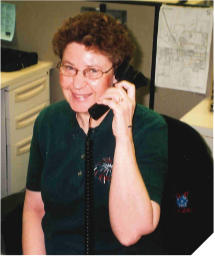Lessons From a High School City Hall Internship
By Luke Fischer

As I approached my senior year in high school, I carefully weighed my options for elective classes. With my college prerequisites complete, I was searching for that sweet spot — something interesting (like the woodworking course I’d already taken), not too challenging (like the Advanced Placement science class I had no business being in), and taught by someone who had a nuanced approach to attendance and attention.

With all the confidence in the world, I approached the high school principal and told him I was ready to work in politics or government and that it was his responsibility to figure out what that might mean for me. Expecting him to find me an impressive assignment in a congressional office, I was a little disappointed when he said he had the perfect opportunity for me … at city hall.
Recognizing my options were probably limited, and the classroom alternatives weren’t necessarily my thing, I agreed to be a high school intern at the Delano City Hall. For a few hours every day, I got to play school-sanctioned, city-sponsored hooky.
What began as an strategy to coast through senior year ended up sparking a passion for a career field we didn’t really talk about in civics classes — one in local government. I remember sorting through address files, studying project plans, and attending a City Council meeting or two. Riveting stuff.
But the real reason this experience stuck with me didn’t have to do with documents, plans, or meetings. It was the people with the city who gave a high school intern a glimpse into why they loved the work they did day in and day out. And boy, did I learn some important lessons.
The intern should spend time with the front desk

LeAnn Zimmerman answered nearly every phone call that came into our small office. I quickly realized she was the smartest, most well-connected person in the city. LeAnn taught me customer service, the importance of follow-through, and that it’s OK to say, “I don’t know, but I’ll find out.”
The intern should spend time with public works
Most administrative interns probably aren’t expected to push snow in the winter or flush watermains in the summer. But, with a blizzard underway, Bob Van Lith called and told me to be awake and ready at 2 a.m. so I could spend some time learning what crews did while the rest of the city slept. He picked me up in a plow and showed me how development entrance monuments can be tough to plow around, why sidewalks need to be a certain width for proper scraping, and why reliable equipment is so critical.
The intern should spend time with the building official
New housing was booming, and Scott Dornfeld, the building official, was working harder than almost anyone. When a frustrated builder came in to dispute a correction ticket issued earlier in the day, Scott looked at me and said, “Let’s go look.” We hopped in his truck and I watched as he calmly explained the building code, quickly calmed a frustrated builder, and kept a project on track.
The intern should spend time at the senior center
There, Manager Gail Sinkel introduced me to a special group present in every community, seniors. The morning coffee group had lots of opinions about “the city” and about the young guy who probably should have been at school. Gail showed me how to really listen, appreciate the individual stories of our village elders, and how to not take it personally when elbows got a little sharp over donuts.
And there were countless others who taught me important lessons along the way. I don’t know if it was all by chance or part of some grand plan, but it worked. Through my internship, those who were doing the work helped me understand the meaning behind it.
This magazine edition highlights successful fellowships from a leadership perspective, and that’s important. But it’s equally important for interns to spend time with people like LeAnn, Bob, Scott, and Gail. Their experience, perspective, and skill can help set up aspiring future leaders for success and teach them important life lessons along the way.
Luke Fischer is executive director of the League of Minnesota Cities. Contact: [email protected] or (651) 281-1279.

